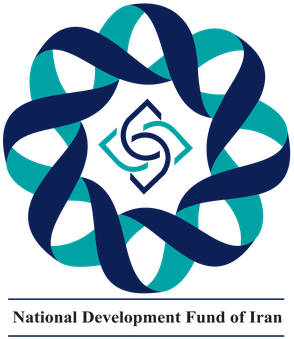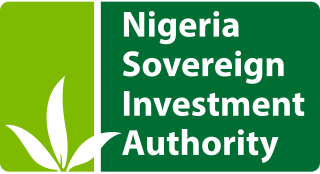
Shukri Mohammed Ghanem was a Libyan politician who was the General Secretary of the General People's Committee of Libya from June 2003 until March 2006 when, in the first major government re-shuffle in over a decade, he was replaced by his deputy, Baghdadi Mahmudi. Ghanem subsequently served as the Minister of Oil until 2011. On 29 April 2012, his body was found floating on the New Danube, Vienna.
The Government Pension Fund of Norway comprises two entirely separate sovereign wealth funds owned by the government of Norway.

The Abu Dhabi Investment Authority is a sovereign wealth fund owned by the Emirate of Abu Dhabi in the United Arab Emirates, founded to invest funds on behalf of the Government of Abu Dhabi. It manages the emirate's excess oil reserves and is estimated to manage $968 billion. ADIA is one of the largest sovereign wealth funds in the world.

Pacific Investment Management Company, LLC is an American investment management firm focusing on active fixed income management worldwide. PIMCO manages investments in many asset classes such as fixed income, equities, commodities, asset allocation, ETFs, hedge funds, and private equity. PIMCO is one of the largest investment managers, actively managing more than $2 trillion in assets for central banks, sovereign wealth funds, pension funds, corporations, foundations and endowments, and individual investors around the world. According to the Sovereign Wealth Fund Institute, PIMCO is the 6th-largest asset manager in the world by managed AUM.

The Saudi Central Bank, previously known as the Saudi Arabian Monetary Authority, established in 1952, is the central bank of the Kingdom of Saudi Arabia. After the name change in 2020, the Saudi Central Bank continued to use the same acronym (SAMA).
The Kuwait Investment Authority (KIA) is the Middle East's oldest sovereign wealth fund, managing the state’s reserve and the state’s future generation fund (FGF).

Baghdadi Ali Mahmudi is a Libyan politician who was Secretary of the General People's Committee of Libya from 5 March 2006 to as late as 1 September 2011, when he acknowledged the collapse of the GPCO and the ascendance of the National Transitional Council as a result of the Libyan Civil War. He has a medical degree, specialising in obstetrics and gynecology, and had served as Deputy Prime Minister to Prime Minister Shukri Ghanem since 2003 at the time he was appointed to replace him. He was a part of Gaddafi's inner circle at least prior to his escape in mid-2011. He was arrested in Tunisia for illegal border entry and jailed for six months, although this was later overruled on appeal, however a Tunisian court decided to extradite Mahmoudi to Libya under a request from Libya's Transitional Council.

Muammar Gaddafi became the de facto leader of Libya on 1 September 1969 after leading a group of young Libyan Army officers against King Idris I in a bloodless coup d'état. After the king had fled the country, the Revolutionary Command Council (RCC) headed by Gaddafi abolished the monarchy and the old constitution and established the Libyan Arab Republic, with the motto "freedom, socialism and unity". The name of Libya was changed several times during Gaddafi's tenure as leader. From 1969 to 1977, the name was the Libyan Arab Republic. In 1977, the name was changed to Socialist People's Libyan Arab Jamahiriya. Jamahiriya was a term coined by Gaddafi, usually translated as "state of the masses". The country was renamed again in 1986 as the Great Socialist People's Libyan Arab Jamahiriya, after the United States bombing that year.

A sovereign wealth fund (SWF), sovereign investment fund, or social wealth fund is a state-owned investment fund that invests in real and financial assets such as stocks, bonds, real estate, precious metals, or in alternative investments such as private equity fund or hedge funds. Sovereign wealth funds invest globally. Most SWFs are funded by revenues from commodity exports or from foreign-exchange reserves held by the central bank.

The Libyan Investment Authority is a government-managed sovereign wealth fund and holding company headquartered in Tripoli, Libya. It was established on August 28, 2006, by Decree 208 of the General People's Committee of Libya (GPC), after the lifting of economic sanctions that had previously precluded foreign investment in Libya. The LIA oversees and manages investments in various areas including agriculture, real estate, infrastructure, oil and gas and in shares and bonds. It is Africa's largest sovereign wealth fund. The fund is a member of the International Forum of Sovereign Wealth Funds and is therefore signed up to the Santiago Principles on best practice in managing sovereign wealth funds. In October 2023, the fund has US$67 billion in assets under management.

The Libyan civil war or the 2011 Libyan revolution, also known as the First Libyan Civil War was an armed conflict in 2011 in the North African country of Libya that was fought between forces loyal to Colonel Muammar Gaddafi and rebel groups that were seeking to oust his government. The war was preceded by protests in Zawiya on 8 August 2009 and finally ignited by protests in Benghazi beginning on Tuesday, 15 February 2011, which led to clashes with security forces who fired on the crowd. The protests escalated into a rebellion that spread across the country, with the forces opposing Gaddafi establishing an interim governing body, the National Transitional Council.
The Timor-Leste Petroleum Fund is a sovereign wealth fund into which the surplus wealth produced by East Timor petroleum and gas income is deposited by the East Timorese government.

The National Development Fund of Iran is Iran's sovereign wealth fund. It was founded in 2011 to supplement the Oil Stabilization Fund. NDFI is independent of the government's budget. Based on Article 84 of the Fifth Five-year Socio-Economic Development Plan (2010–2015), the National Development Fund was established to transform oil and gas revenues to productive investment for future generation. It is a member of the International Forum of Sovereign Wealth Funds and therefore is signed up to the Santiago Principles on best practice in managing sovereign wealth funds. Withdrawing any money from this fund requires Khamenei's permission.

The Sovereign Wealth Fund Institute is an American corporation analyzing public asset owners such as sovereign wealth funds and other long-term governmental investors. Initially, the Sovereign Wealth Fund Institute focused solely on sovereign wealth funds. It has branched out to cover all types of public institutional investors. The institute sells its subscription and API/datafeed services as a financial data vendor but provides information to the media as well.
Bashir Saleh Bashir is a former aide of former Libyan leader Muammar Gaddafi of Toubou origin. He was head of the Libyan African Portfolio, a sovereign wealth fund that invested Libya's oil wealth mostly in sub-Saharan Africa, and served as an intermediary between Libya, Africa and France. Bashir was captured after the Battle of Tripoli during the Libyan Civil War, but later escaped. Libya demanded that he be extradited because it was believed he was in France. Bashir spent Libya's oil money solely for the Gaddafi family, buying up hotels, mineral resources and shares in companies, eventually becoming what some Libyan officials and financial experts describe as one of the largest single investors in Africa. Libyan authorities believe that finding him is the key to finding a missing $7 billion in Libyan funds. He is a close associate of French businessman Jean-Yves Ollivier.

The Nigeria Sovereign Investment Authority is a Nigerian establishment which manages the Nigeria sovereign wealth fund, into which the surplus income produced from Nigeria's excess oil reserves is deposited. This sovereign wealth fund was founded for the purpose of managing and investing these funds on behalf of the government of Nigeria. The fund was established by the Nigeria Sovereign Investment Authority Act 2011, signed in May 2011, and commenced operations in October 2012. It is intended to invest the savings gained on the difference between the budgeted and actual market prices for oil to earn returns that would benefit future generations of Nigerians. The fund was allocated an initial US$1 billion in seed capital, and, an additional $0.60billion has been contributed to date by the current administration. In October 2023, the fund has US$2.3 billion in assets under management.

The Fundo Soberano de Angola is the sovereign wealth fund of Angola. It is a member of the International Forum of Sovereign Wealth Funds, and therefore has signed up to the Santiago Principles on best practice in managing sovereign wealth funds. The FSDEA is meant to play an important role in promoting Angola’s social and economic development and generating wealth for its people. The fund was rated by the SWFI in February 2015 with a ranking of 8 out of 10.

The Public Investment Fund is the sovereign wealth fund of Saudi Arabia. It is among the largest sovereign wealth funds in the world with total estimated assets of US$925 billion. It was created in 1971 for the purpose of investing funds on behalf of the Government of Saudi Arabia. The wealth fund is controlled by Crown Prince Mohammed bin Salman, Saudi Arabia's de facto ruler since 2015.

Libya allegedly bankrolled the presidential campaign of Nicolas Sarkozy with up to €50 million in pay-outs. Sarkozy has denied wrongdoing and rejected suggestions he was a Libyan agent of influence during his tenure as president of France. He has since officially been convicted of corruption in 2021.
















